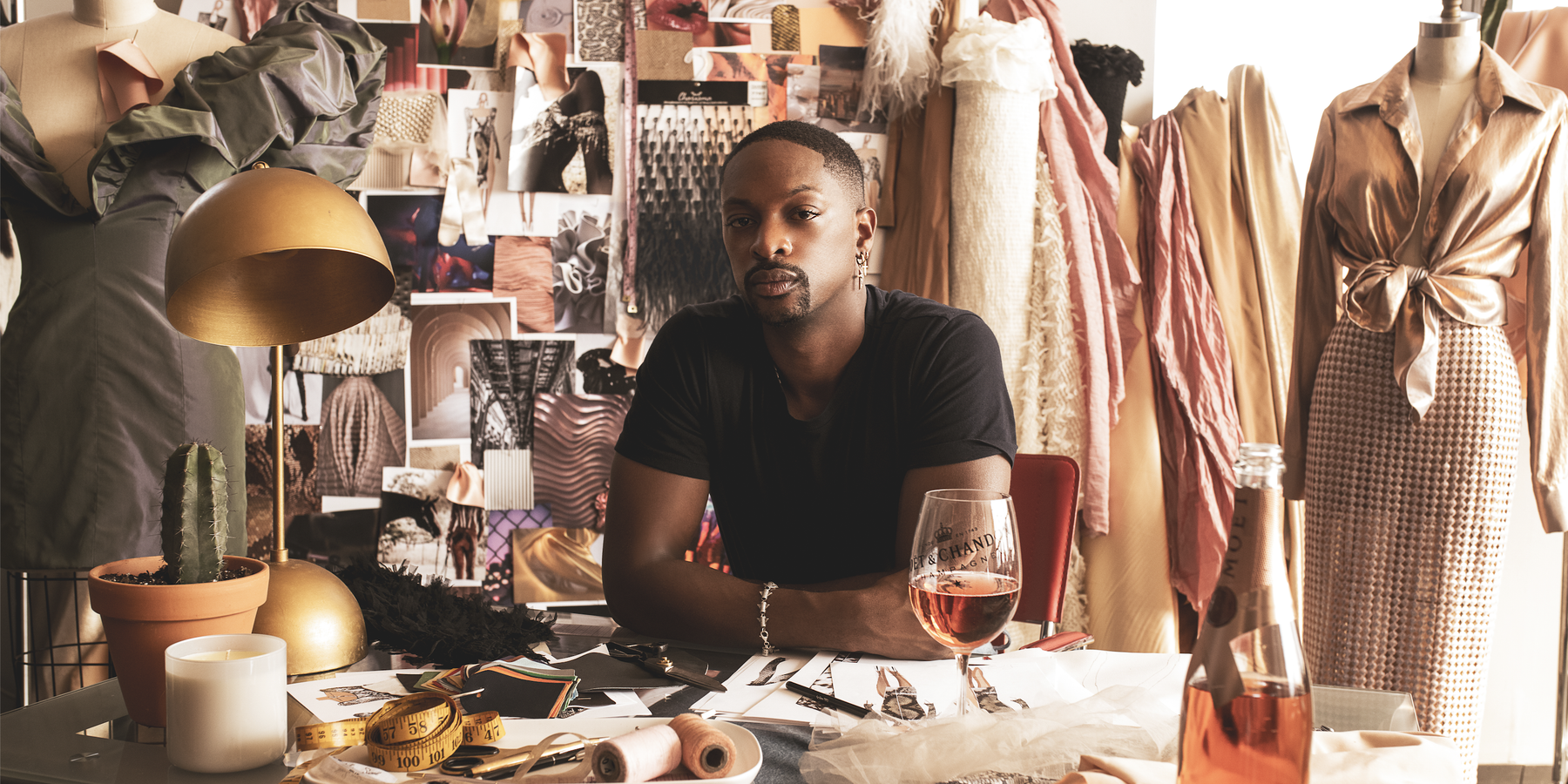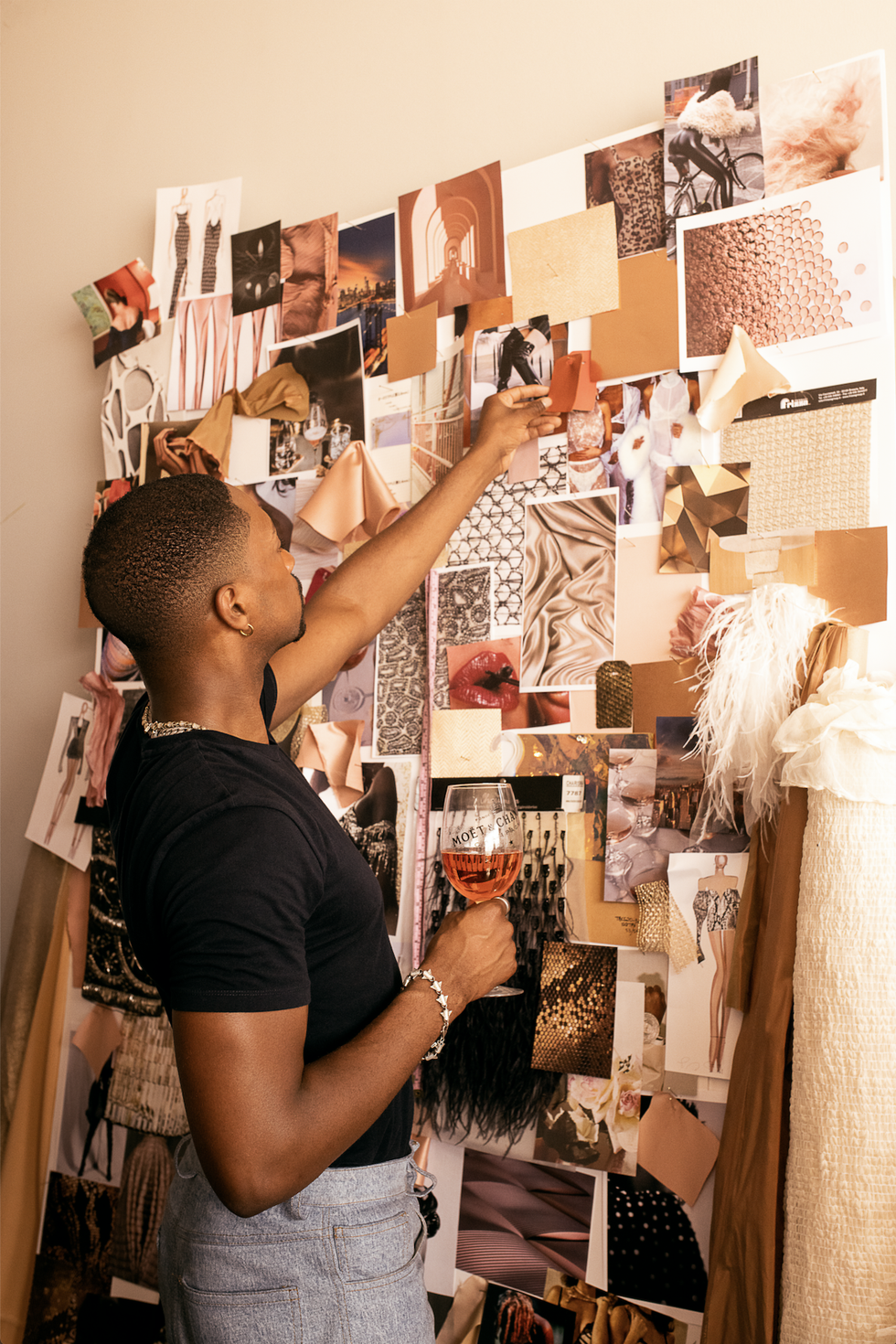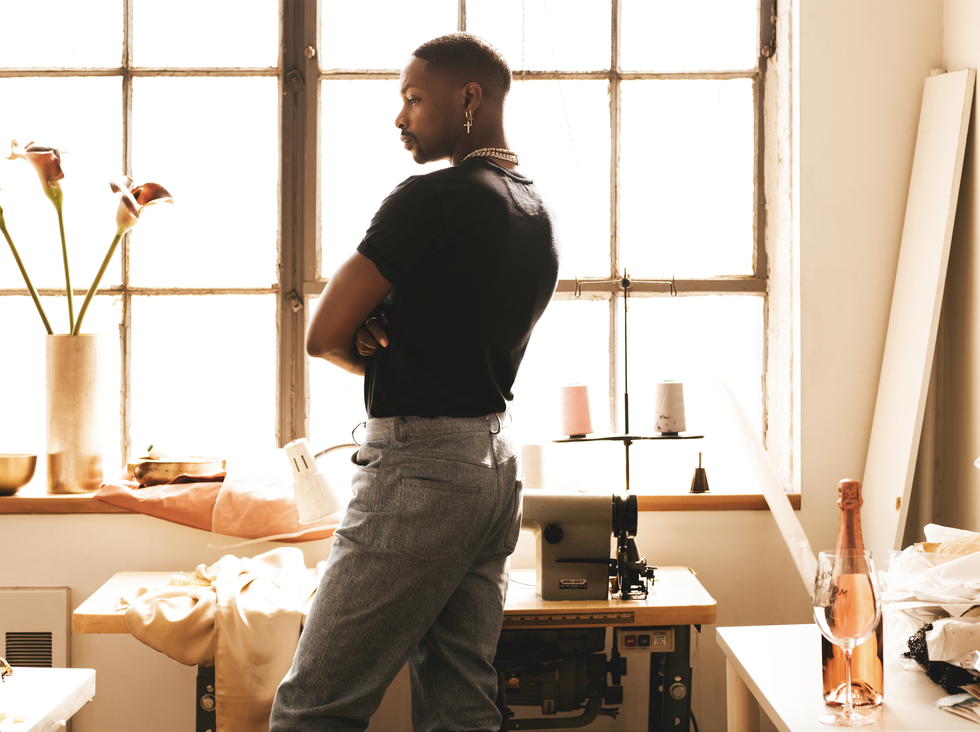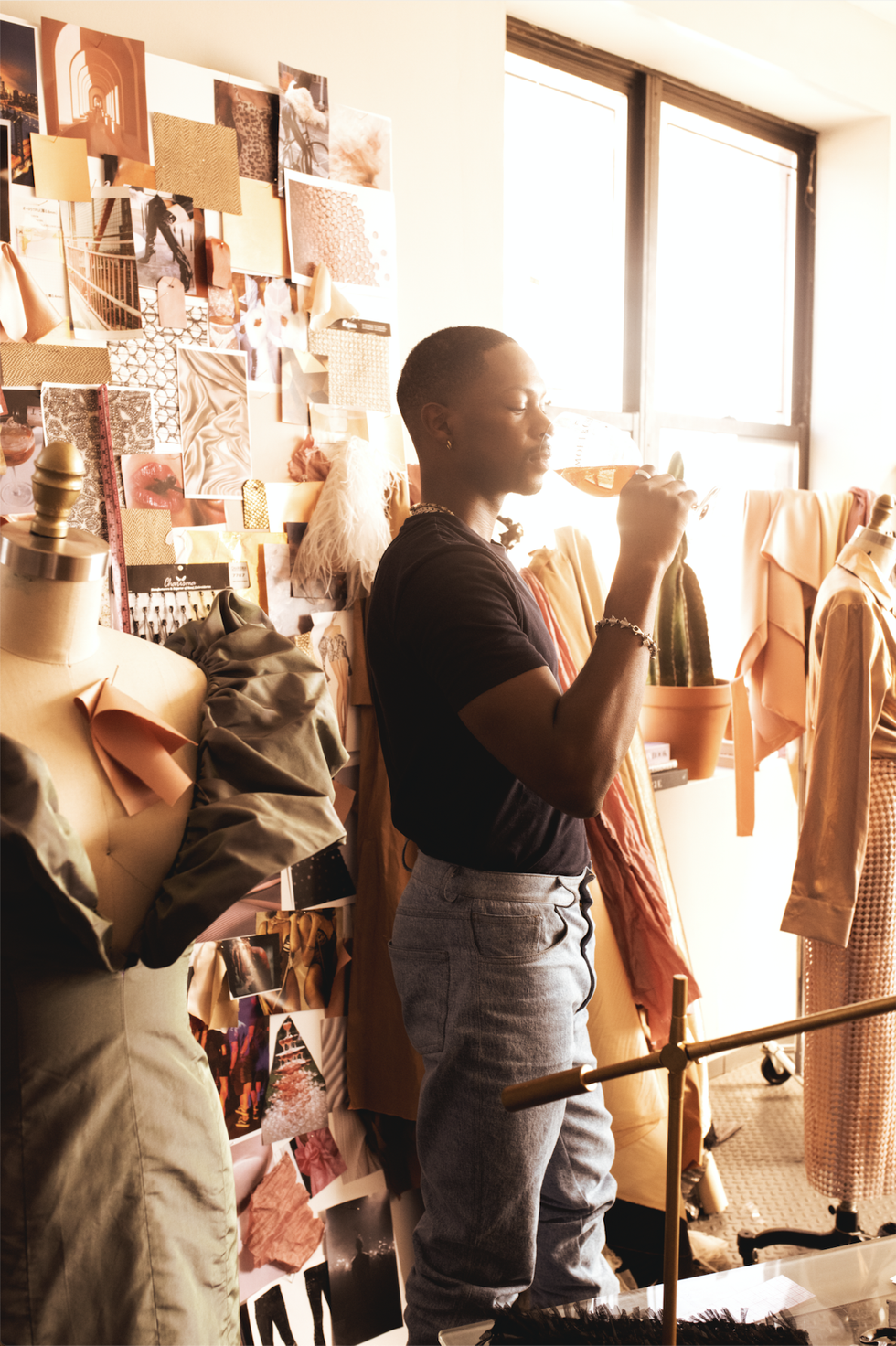
It's hard to believe that LaQuan Smith, one of New York's preeminent designers, is already approaching a decade in business. It's also easy to forget that the same man who creates custom looks for the Beyoncé's, Rihanna's, and Cardi B's of the world was rejected from many of the top fashion schools — an early setback that many would find discouraging. But the self-taught Queens native has worked diligently to get his company off the ground, creating a brand that speaks to the culture of women's liberation, confidence, sexiness, and celebration of their bodies.
Last month, luxury spirits brand Moët & Chandon tapped Smith be the face of its new program for its top-selling Nectar Imperial Rosé — an initiative that spotlights people in key cities who are "shaping culture" and impacting a new generation, kicking off with New York City and Smith. With his 10-year anniversary coming up, he spoke with PAPER on a wide variety of topics, from his early struggles starting out to trusting his instincts to what's in store for the future.

What was your reaction when you learned that Moet wanted to feature you as their cultural pioneer for New York?
My initial thought was really a level of excitement. I thought they were such a great opportunity and a great union; Moet is such a legendary brand to be a part of and I am more so honored to be a part of this union, family, and collaboration, what it means, and the value that it holds. So I was completely ecstatic and really excited to be a part of it all.
When it comes to aligning your brand with the right partner, what are some of the things you're looking for?
I'd love to consider myself to be very selective for at least my team and my business. So the things that I look for in partnerships is a level of integrity, basic representation, inclusivity, and diversity. I'm keeping things very classy, still with a level of sensuality, a level of luxuriousness. These are all little small factors that I feel like I always look for another partner to represent if I'm going to collaborate with them, because I feel like that's what I represent. I only want to do things that are authentic to who I am and what I represent.

Looking back at your career for the past almost 10 years, what have you learned about yourself the most?
I'm constantly evolving. I mean when I first started out, I started with nothing. I had no money, no connections, I had nothing. So now to in the space where I'm collaborating with incredible luxury brands, and I'm dressing the most beautiful famous women in the world, and just being able to contribute to music and fashion, I just feel like my brand has definitely evolved in such a tremendous way. I don't feel like it's been overnight. We've been working so hard for everything that we have been doing and it's just exciting.How has growing up in New York City influenced your career?
New York is always been a source of inspiration — it's pretty much everything I know. Growing up in Queens, I was pretty sheltered as a kid. As I started getting older, I was always enthralled by music: hip-hop videos, music videos. My journey of going to school by passage of 8th Avenue, reggae music blasting, and just the urban factor of it all, even down to nightlife. Me going to the club and me hanging out in the Meatpacking district and just this level of vibrancy and sexiness and excitement. I wanted to be able to create that feeling again. I guess that was my takeaway when it came down to creating clothing, like "How can I make a woman feel just as sexy as I felt when I was in nightlife or hanging out in the Meatpacking District?"
How have you been able stay true to your brand's design aesthetic and values starting out and throughout the years?
It's been a little bit difficult. I come from very humble beginnings and my grandmother and grandparents were always like, "You know what works best for you — stick to your guns and stick to what you believe in." I think when you come to this industry as a young designer and you're so hungry and thirsty and you don't really know how to get there or what to do. You're pretty much a sponge. You're absorbing everyone's opinions of what you should be doing. And sometimes you have to take things with a grain of salt. I think you develop that as you get older, or maybe as you become wiser and more experienced. If I were to listen to everybody that had something to say about me as a designer or what I should do with my business, I wouldn't be where I am today. Has it been easy to find my voice? No. But I feel like I've found it and I know what works for me, so I just stick to my lane.
What keeps you motivated?
I think the business I'm running is a very hard business to be in, but at the end of the day I love what I do and I'm very passionate about what I do, and I think that's a very important factor when it comes to running a business. I'm open to challenges, I'm open to failing, I'm open to wins and losses. I just feel like for me this is more so an experience and a journey. And I already know the trajectory of where I'm going and what I want to do, but I think it's more so appreciating the journey of how I'm gonna get there. So I feel that today there's so many things LaQuan Smith as a brand is doing, and I think the future is so incredibly bright for us and for me.
Photos courtesy of Moët & Chandon